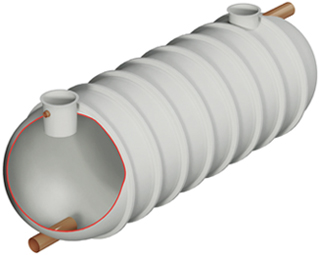Blocked drains are a widespread problem throughout the UK and while they sometimes only pose a minor inconvenience, other times they can create a drastic, prolonged problem that has long-lasting consequences.
It’s easy to ignore what is lurking in your drains, but some sewer systems may be harboring a ticking time-bomb of a drainage problem: ‘fatbergs’. In this article, we’re taking a look at fatbergs; what they are, the problems they can cause and how they are best dealt with.
What are fatbergs?
Fatbergs are large deposits of fat, grease, oils, sanitary items and wet wipes which have been flushed or washed down the sink and left to collect and congeal in a sewer system. Resembling their oceanic iceberg brethren, fatbergs are sizeable lumps which stick to sewer pipes. Fatbergs can gradually move along a sewage system until they become so large that they cause a complete blockage.
Fat, grease and cooking oil mixtures are the primary foundations of fatbergs. If you’ve ever tried to shift fatty or fried foods from pans or pots, you’ll know that it can take a lot of effort to fully eradicate them, but letting the deposits wash down your sink can cause even more trouble. The hot mixture cools once it’s made its way into the drains, and once it cools it sets, creating what we refer to as fatbergs.
Fatbergs will grow and collect as more fat and oil is poured down the sink, while other unflushables like wet wipes and sanitary items will find their way into the growing berg if not disposed of correctly.
The harm of fatbergs
As with many things, the worst things can happen when we don’t expect them and fatbergs thrive on remaining undetected for long periods of time. If a fatberg exists somewhere along the drainage system to your premises, letting one grow to become a blockage hazard can have severe consequences in the future.
Bigger fatbergs can block sewers, causing sewage back-ups. Depending on the severity of the fatberg, this could affect a wide area with raw sewage erupting from manholes in the street as well as inside your property.
For businesses – especially commercial kitchens and restaurants who may be more at risk of fatbergs – this can wreak havoc. Sewage seeping back into your building can create a sizeable flood, and can potentially reap costly damage throughout. The sewage will also need to be cleaned up; pumped away by a professional drainage company, and there could also be long lasting damage to the sewer pipe itself.
Fatbergs cause major disruption if allowed to grow unabated and, if your business doesn’t employ proper drainage practices, it’s likely that at least some of the fat, oil and other ‘unflushables’ are routinely sticking to the pipes. It might take a while, but there could very well be the beginnings of a fatberg in your drainage system.
How to deal with fatbergs
Fatbergs will significantly reduce the performance of any sewer and might not be identified until nearby homes or business notice this, their toilets may not flush anymore, for instance. A CCTV drain survey will need to be conducted, with flexible cameras inserted into the sewer system until the offending fatberg is located.
Once it has been identified, the fatberg needs to be removed. This is typically done via drain jetting – blasting blockages with high pressure water. Again, depending on the size of the fatberg, larger drain jetting units may need to be used.
Once the fatberg has been vanquished there may be leftover damage to the pipes themselves. This will need to be repaired, and could take some time; damage to pipes in London once required six weeks to be repaired after an extremely large fatberg was removed, for example.
Fatberg prevention
To make sure that you and your business won’t have to face the damaging consequences of a fatberg, there are some easy preventative practices you can implement in your daily work routine.
As discussed, fatbergs are caused by the things that go down your drain. Training your staff to avoid pouring fat or oil down the sink will go a long way towards preventing congealed deposits on sewer pipes, so make sure to scrape plates and cooking equipment before washing them.
Installing a grease trap will also help; intercepting grease and oil before it can make its way into your drains. Keep the grease trap regularly cleaned and maintained and you’ll be saving your pipes a ton of trouble.
It’s also important to bin certain things like wet wipes, sanitary items, kitchen roll, cotton buds and plasters. Staff in a busy environment such as pubs and restaurants should be made aware of the dangers of flushing these items, and signs should be posted in kitchens and bathrooms so employees and the public alike are kept aware and reminded to bin what cannot be flushed.
Keeping your drains healthy is an ongoing process, needing communication and cooperation throughout your business. Simply being more attentive to what goes down the sink and toilet will keep you clear of blockages and nasty sewage odours, and will prevent fatbergs from posing a threat to your building and the operation of your business.
Wildon UK specialise in proficient, professional and reliable unblocking of drains of all sizes. We utilise the most modern techniques and equipment to provide efficient drain jetting to clear even the most stubborn of blockages, and our experienced team can provide all the advice and guidance you need in order to keep your drains clear and free from blockages in the future. To find out more about everything we do here at Wildon UK, don’t hesitate to get in touch with us today.
Go back to








